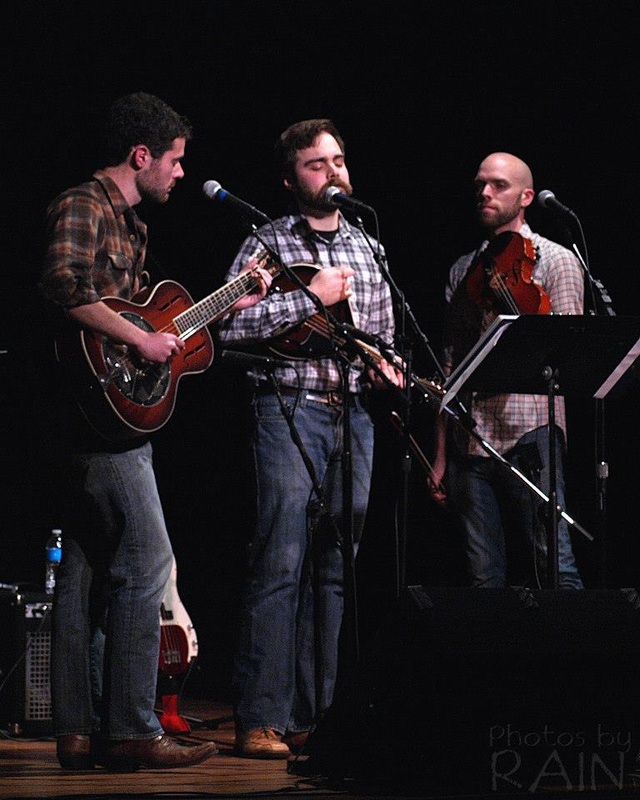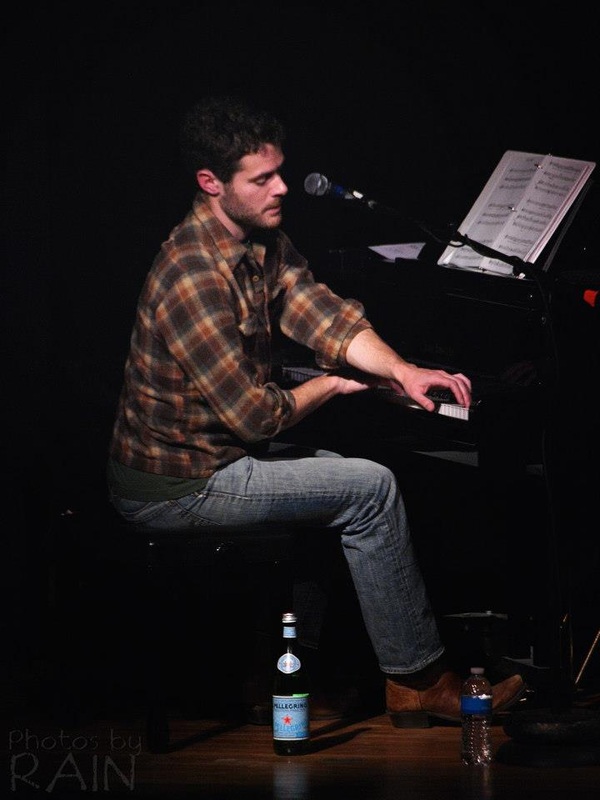|
It's the coldest week of the winter in Chicago, and it's interesting to see how the single-digit temperatures affect everyone's energy.
For my part, I was lying in bed late last night when a voice in my head began interviewing me about my composing and songwriting and the relationship between the processes. I liked my answer enough that I got out of bed to write it down. Here it is: "They're the same. They come from somewhere else. I'm going to get mystical in a second here, but I'll try to do so in the most prosaic manner possible, as the question is one of functionality. I've found it extremely helpful to place creativity outside the self. You can use terms like 'muse' or 'divine spark' if you like. The point is to absolve yourself of responsibility for the results--because they aren't yours, it's not 'your' talent, it isn't you and it doesn't belong to you. Whatever it is, from time to time it shows you things, and you are called upon to write them down. "That's when things are going well. When they're not going well, I feel like I'm pulling out my own teeth and trying to sell them to people." And that is art. One-AM zero-degree thoughts, friends. Briefly, today, I'd also like to use this platform to formally recommend some music that has come my way in the past week. The first would be Norwegian trumpet-saxophone duo Streifenjunko, whose album Sval torv is just so quiet and mysterious and beguiling, and is a favorite new addition to the place in my heart reserved for nocturnal post-jazz explorers who cross genre crevasses like climbers on Everest walking across those creepy ladders. Bust out the crampons y'all. (See also: Polar Bear, Brokeback, et al.) The second is Josephine Foster. File under "spotless vocal delivery." Check out "The Siren's Admonition" from Hazel Eyes, I Will Lead You. The third is The Murphy Beds, who rank in the top two tips I've received in my one short month on Twitter (rivaled only by this immortal video of Harry Partch making rose petal jam). "Bonny George Campbell" is an absolute devastator. I must've listened to it two dozen times today, so naturally at some point I began to wonder what makes it work so well--especially in light of numerous capable but lugubrious and uninviting versions of the same song kicking around the internet. Here goes: This track is perfectly pitched to feel genuine and meticulous at once. The tempo is easy, not fast, not slow. The string lines are beautifully ornate, but what really makes the difference is the singing--these guys don't possess stunning, world-class vocal instruments, and that makes the tune more powerful, because they sound like regular people who happen to sound great harmonizing together. Look at the pleasantly off-balance voice leading of the baritone line, the strings' dialogue between unison, harmony, and counterpoint. And listen to THAT THIRD VERSE, which is one of those lapidary quatrains far too perfect to have been composed by any one person. This is an old song; it's been filtered through a lot of minds and hearts, and they've smoothed it around the edges like a river rock in a silent canyon in some lost corner of the Sierras. It's not so much a situation of "if there were justice in the world, everyone would know this band." Because if there were justice in the world, we wouldn't have ended up with sad, beautiful songs like these to begin with. It is well-publicized that it's tough to be a young composer, that opportunities are scarce and you have to hustle to get anyone to play your music, and that one popular strategy is to say "yes" to every opportunity that comes your way.
I've spent most of my twenties ignoring this conventional wisdom, writing the pieces I felt like writing, inventing and adapting new musical situations as I went, rather than shaping compositional ideas around pre-existing ensembles and externally designed projects. There was a touch of iconoclasm to this approach, yes, but mostly it was a result of my longstanding commitment to being involved with my musical output as a performer. Tallying the results today, in my "early late twenties," I see a lot of personally and artistically satisfying projects, but I also see a lot of ad hoc performing ensembles and concerts--replete with energy, but not always with polish. I see a lot of pieces that haven't received repeat performances. (Tenor voice/cello/double bass/bass clarinet/contrabassoon, anyone?) I've gained a clearer sense of myself as a musician, my aesthetic priorities and foibles, but I've also perhaps avoided extending myself in certain ways; responding to the exigencies of a commission with a deadline is a learning experience, too. I raise these topics because sometime last year I tired of my pet projects and developed an appetite for the pursuit of conventional compositional opportunities. This was as great a surprise to me as to everyone else. Things came my way, and I adhered to the traditional approach: I said "yes" to everything. And now, several months later, I find myself in another familiar situation for a young composer: I'm over-committed. I guess you get so used to hustling that you don't know when to stop. I don't think I necessarily should have turned down any of the pieces presently on my plate, but it might have been a good idea to stage them a bit more carefully. Lesson learned. The good news is that as a result I have some exciting premieres coming up. My always enterprising hornist friend Jessica Pearce has assembled an awesome benefit concert for the YOURS Project on February 24th. Jessica's quintet Windswept will premiere the wind quintet arrangement of my Lost Chorales, and the program will also feature my first double bar of 2013, a short trumpet/horn duet called Partsongs. In March, my George Crumb Music for a Summer Evening crew from UT-Austin will reassemble in Orlando, the natural habitat of percussionist Thad Anderson, to play a show on the Collide Contemporary Music Series. I'm contributing a new piece, which for the moment must remain mysteriously untitled. And in May, Singers on New Ground and the Chicago Q Ensemble team up for a concert at the Poetry Foundation in Chicago. The program includes a new song cycle by Brian Baxter and another Gullickson premiere, a song for soprano, violin, and viola. On the nearer horizon, Grant Wallace Band has two shows in Chicago this month. First, on January 26th we open for our great friends, those geniuses of rock miniatures Paper Mice, at The Burlington in Logan Square. Here's the facebook event for that one. Then, on January 31st, we return to one of our favorite far north side haunts, Uncommon Ground, for a terrific evening with classical soprano/folkstress extraordinaire Alison Wahl. That same night, the Locrian Chamber Players are taking And the trees of the field will clap their hands for a ride at Riverside Church in New York City. I can't wait to hear their spin on it. A few days later, I drive south for a sure-to-be-badass season of artist residencies. I'll be at the VCCA for a month, then head to Wyoming to spend two weeks at Ucross. January is about tying up lots and lots of loose ends so I can have a clear head to begin new work when I get to Virginia. Wish me luck. To that end, I even got out the banjo yesterday to start recording the next Golconda, which has been dubbed with the following working title: By these limits were they circumscribed and of them were they locus. Regular readers of this blog will perhaps catch the literary reference. In further 2013 news, I like Twitter way more than I ever expected to. Below, a couple shots from the Grant Wallace Band show at CSPS. We had a blast performing at this fantastic venue, and were blown away by the original Grant Wood drawings in the green room. Thanks Charles Raianerastha Black for the great photos! |
A Selection• Gone Walkabout
• Migration • Music as Drama • Crossroads II • 10 Best of 2014 • January: Wyoming and the Open • February: New Mexico and the Holes • Coming Up • Notes on The Accounts • Crossroad Blues • Labyrinths Archives
October 2020
|


 RSS Feed
RSS Feed